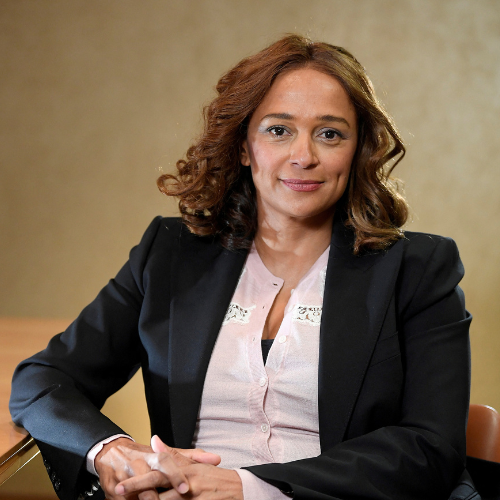The United Kingdom has taken a firm stand against global corruption by imposing sanctions on prominent figures accused of massive wrongdoing. Billionaire Isabel dos Santos, Africa’s first female billionaire, and Ukrainian oligarch Dmytro Firtash are among those targeted. These actions are part of the Labour government’s promise to tighten its anti-corruption measures.
Billionaire Isabel dos Santos in the Spotlight
Isabel dos Santos, daughter of former Angolan President Jose Eduardo dos Santos, is no stranger to controversy. Over the years, she has faced accusations of using her high-profile positions to funnel money from Angola’s state resources for personal gain.
Dos Santos held influential roles at the state-owned oil company Sonangol and the telecommunications firm Unitel. According to UK authorities, she embezzled at least £350 million ($440 million) during her tenure. She has denied these allegations, calling them a politically motivated attack, but she has not been able to shake off her troubled reputation.
The UK sanctions come after her assets worth £580 million were frozen by a London court earlier this year. Interpol, the international police agency, has also issued a “red notice” for her, which signals law enforcement globally to locate and potentially arrest her. Dos Santos claims the sanctions are unfair and says she was not given the chance to defend herself, vowing to appeal.
Her troubles are not new. The United States had already sanctioned her in 2021 for alleged involvement in corruption, barring her from entering the country. The UK’s move adds further weight to her ongoing legal battles.
Ukrainian Oligarch Dmytro Firtash Also Targeted
Another significant figure on the sanctions list is Dmytro Firtash, a Ukrainian billionaire accused of financial misconduct on a massive scale. British officials claim he exploited Ukraine’s gas transit system, siphoning off hundreds of millions of pounds. A significant portion of this wealth, they allege, was hidden in the UK property market.
Firtash, once a key player in Ukraine’s gas industry, has faced legal challenges for years. Both Ukrainian and US authorities want him extradited. The US accuses him of embezzling $500 million, while Ukraine alleges he has profited from dealings that indirectly support Russian military companies.
Corruption Network Exposed: Bosnia’s Milorad Dodik Faces New Sanctions
Firtash is currently fighting extradition from Austria, where he resides. Britain has also sanctioned his wife, Lada Firtash, for reportedly holding assets in the UK on his behalf. Among these assets is the old Brompton Road rail station site in London, which has now been frozen.
Others Caught in the Dragnet
The UK sanctions also extend to Latvian businessman and politician Aivars Lembergs and his daughter Liga Lemberga. Lembergs was previously sanctioned by the United States in 2019 for alleged corruption, including bribery and money laundering. The British government accuses him of abusing his political position to enrich himself.
These sanctions are part of a broader push by the UK to fight “dirty money” and kleptocracy – a system where corrupt officials use their power to accumulate personal wealth at the expense of their country. Foreign Secretary David Lammy has made it clear that these actions are only the beginning of the Labour government’s anti-corruption efforts.
Lammy called out these individuals for depriving their countries of essential resources like education, healthcare, and infrastructure. “These unscrupulous individuals selfishly deprive their fellow citizens,” he said, emphasizing the devastating impact of corruption on ordinary people.
Why This Matters
The UK’s sanctions send a strong message to corrupt individuals worldwide: no matter how wealthy or powerful you are, your ill-gotten gains won’t find a safe haven. By freezing assets and barring entry to these high-profile figures, Britain aims to tighten its grip on the global fight against corruption.
These moves are not without controversy, as those targeted, like dos Santos, argue they are victims of political persecution. Still, the evidence presented by various governments and courts suggests a consistent pattern of financial misconduct.
The Labour government’s action marks a significant step in tackling corruption on a global scale, setting the tone for future measures to curb financial crimes and hold powerful individuals accountable.


